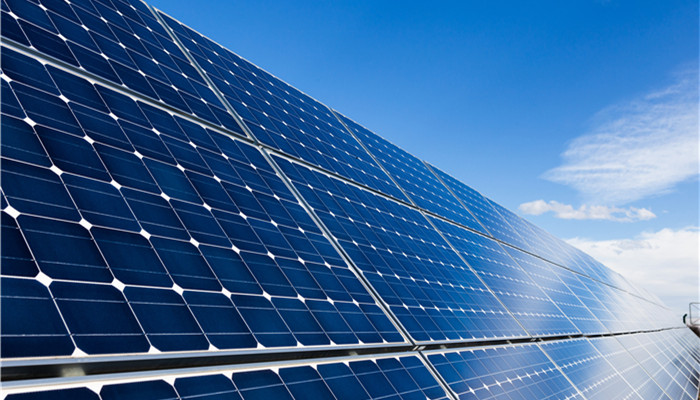
Thin-film solar cell production capacity is rapidly expanding and the industry has broad prospects for development
Thin film solar cells refer to solar cells made of cadmium telluride, gallium arsenide, copper indium gallium selenide, etc. as raw materials. Thin film solar cells have the advantages of high photoelectric conversion efficiency, high photon circulation, and low production cost.
As a renewable energy source, solar energy has minimal harm to the environment and is widely distributed. It is used in the power generation industry. As a key part of the power generation system, solar cells can make full use of the photovoltaic effect. When an object is exposed to light, the charge distribution state in the body will change, thereby generating electromotive force and current. Benefiting from the growth in market demand, my country’s solar cell production continues to increase. According to data from the National Bureau of Statistics, my country’s solar cell production will reach 234.054 million kilowatts in 2021, a year-on-year increase of 48.8%. Driven by the rapid development of the solar cell industry, my country’s thin-film solar cells have gained broad market space.
According to different raw materials, thin film solar cells can be divided into five categories: cadmium telluride (CdTe) thin film cells, silicon-based thin film cells, gallium arsenide (GaAs) thin film cells, dye-sensitized thin film cells and copper indium gallium selenide (CIGS) thin film cells. . At present, cadmium telluride thin film batteries and copper indium gallium selenide thin film batteries are the mainstream products in the thin film solar cell market, among which cadmium telluride thin film batteries account for nearly 96.0% of the global market share. As one of the earliest widely used thin-film solar cells, cadmium telluride thin-film cells have the advantages of low production cost, simple manufacturing process, and low environmental pollution. They are mainly used in photovoltaic power stations.
According to the “2022 Thin Film Solar Cell Industry In-depth Market Research and Investment Strategy Analysis Research Report released by the Industrial Research Center, at present, The world’s most well-known thin-film solar cell companies are mainly concentrated in the United States, Japan and Germany, including First Solar in the United States, Dow Chemical in the United States, Sharp in Japan, and Antect Solar Energy in Germany. First Solar of the United States is the world’s largest thin-film solar cell manufacturer. Driven by its output, global thin-film solar cell production capacity will grow rapidly in 2021. According to statistics from the China Photovoltaic Industry Association, global thin-film solar cell production capacity will reach 10.70 million kilowatts in 2021, a year-on-year increase of 27.7%.
Driven by the national “double carbon” goal, my country’s photovoltaic power generation industry has developed rapidly, and the number of thin-film solar cell companies has increased significantly. In recent years, local companies such as ENN Technology, Jinjing Technology, Kangyue Technology, and Longyan Energy Technology have continuously improved their independent research and development capabilities, driving the continued expansion of my country’s thin-film solar cell production capacity.
Industry analysts said that as a new type of photovoltaic device, thin-film solar cells have multiple advantages such as high efficiency, low cost and small mass. The field of new energy power generation has received widespread attention. Driven by national policies and international situations, the production capacity of thin-film solar cells has increased rapidly and is expected to be applied on a large scale. As independent research and development capabilities continue to make breakthroughs and innovations, domestic thin-film solar cells will gain broad market prospects.

 微信扫一扫打赏
微信扫一扫打赏

